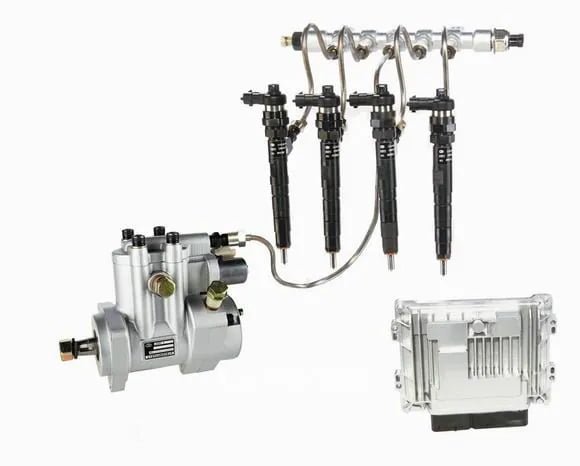
With the rapid development of the automotive industry, high-pressure common rail technology has gradually become the mainstream technology in modern diesel engines. With its efficient fuel injection control and excellent emission performance, this technology is driving the innovation and transformation of global diesel engines. However, with the changes in market demand and the improvement of environmental protection standards, high-pressure common rail technology also faces many challenges.
Major challenges
- High Costs Limit Adoption
The development and production of high-pressure common rail systems are expensive. Key components like injectors, ECUs, and high-pressure pumps require precision materials and advanced manufacturing techniques. As a result, both the initial investment and maintenance costs are high. In cost-sensitive markets, especially for commercial vehicles, this presents a challenge.
- Increased Complexity Makes Maintenance Harder
High-pressure common rail systems are complex devices, requiring specialized tools and skills for diagnostics and repairs. Maintenance teams need extra training, which can be a big challenge in underdeveloped areas.
- Durability Under High Pressure
The system operates at pressures as high as 2000-3000 bar or more. Prolonged exposure to such high pressure can wear out critical components like injectors, reducing system reliability and lifespan.
- High Fuel Quality Demands
High-pressure common rail systems require extremely pure fuel. Using low-quality fuel can clog or damage injectors, which can seriously affect vehicle performance. In regions where fuel quality is inconsistent, impurities can lead to expensive repairs.
- Meeting Stricter Environmental Regulations
As global environmental laws tighten, automakers are under pressure to enhance high-pressure common rail systems to meet stricter emissions standards. This will require constant innovation to stay ahead of evolving regulatory demands.
Opportunities
- The Ideal Solution for Reducing Emissions and Saving Energy
High-pressure common rail technology enhances combustion efficiency by precisely controlling fuel injection. This reduces both fuel consumption and emissions, making it highly attractive for automakers and consumers focused on energy efficiency. In commercial vehicles, cutting fuel costs and lowering emissions are key goals.
- Seamless Integration with Smart Control Systems
As cars rely more on electronic control systems, high-pressure common rail technology easily integrates to offer smarter fuel management. Paired with autonomous driving, it can adjust fuel injection in real-time to optimize performance, ensuring a smoother, more efficient driving experience.
- Collaborating with Electrification and Hybrid Systems
While electrification is growing, diesel engines remain essential in commercial and heavy-duty vehicles. By combining high-pressure common rail technology with hybrid systems, it boosts fuel efficiency, providing strong power and long-range performance, especially in long-haul transportation.
- Expanding into Diverse Applications
In addition to automotive uses, high-pressure common rail technology shows promise in ships, agricultural machines, and construction equipment. As these industries demand better fuel efficiency and stricter emissions controls, the need for this technology will continue to rise.
Future Trends: Opportunities Outshine Challenges
Despite the challenges faced by high-pressure common rail technology, the wave of global energy-saving and smart advancements presents far greater opportunities. With progress in material science and manufacturing techniques, the system’s durability and reliability will improve, driving down costs. As emission regulations tighten, high-pressure common rail technology will keep evolving, maintaining its critical role in engine systems.

About Us
Bokk Tech specializes in various diesel common rail injector and pump testers and drivers, supporting testing of various brands such as Bosch, Delphi, Denso, Siemens, etc. The test bench can be customized according to your needs. We also provide related accessories such as injectors, plungers, etc.
Share The Post